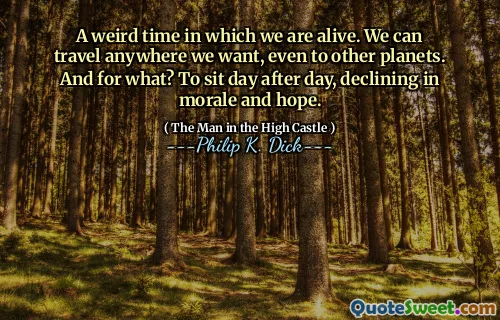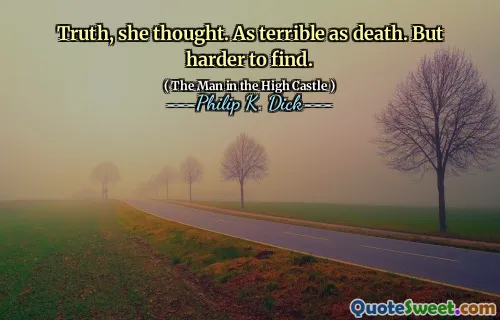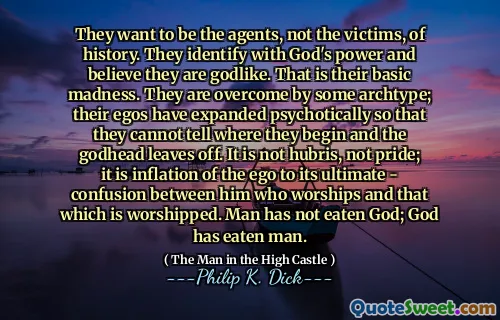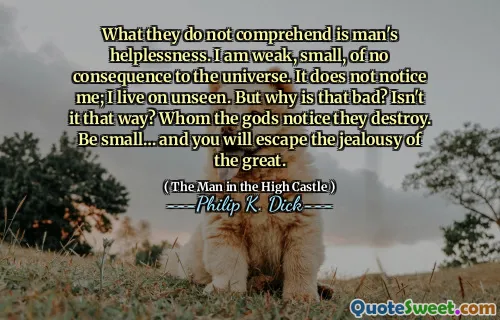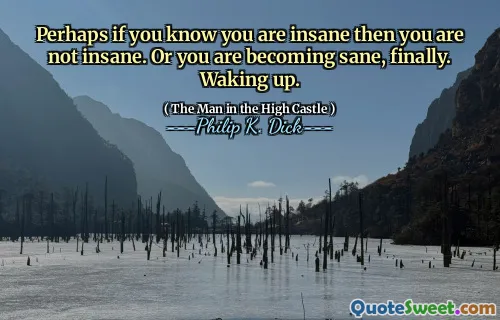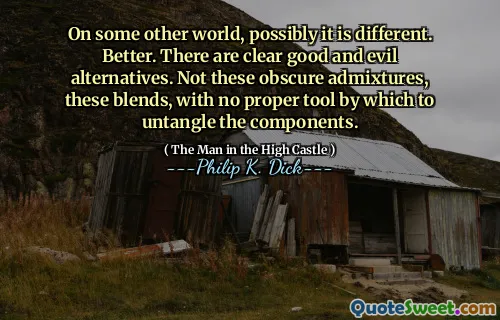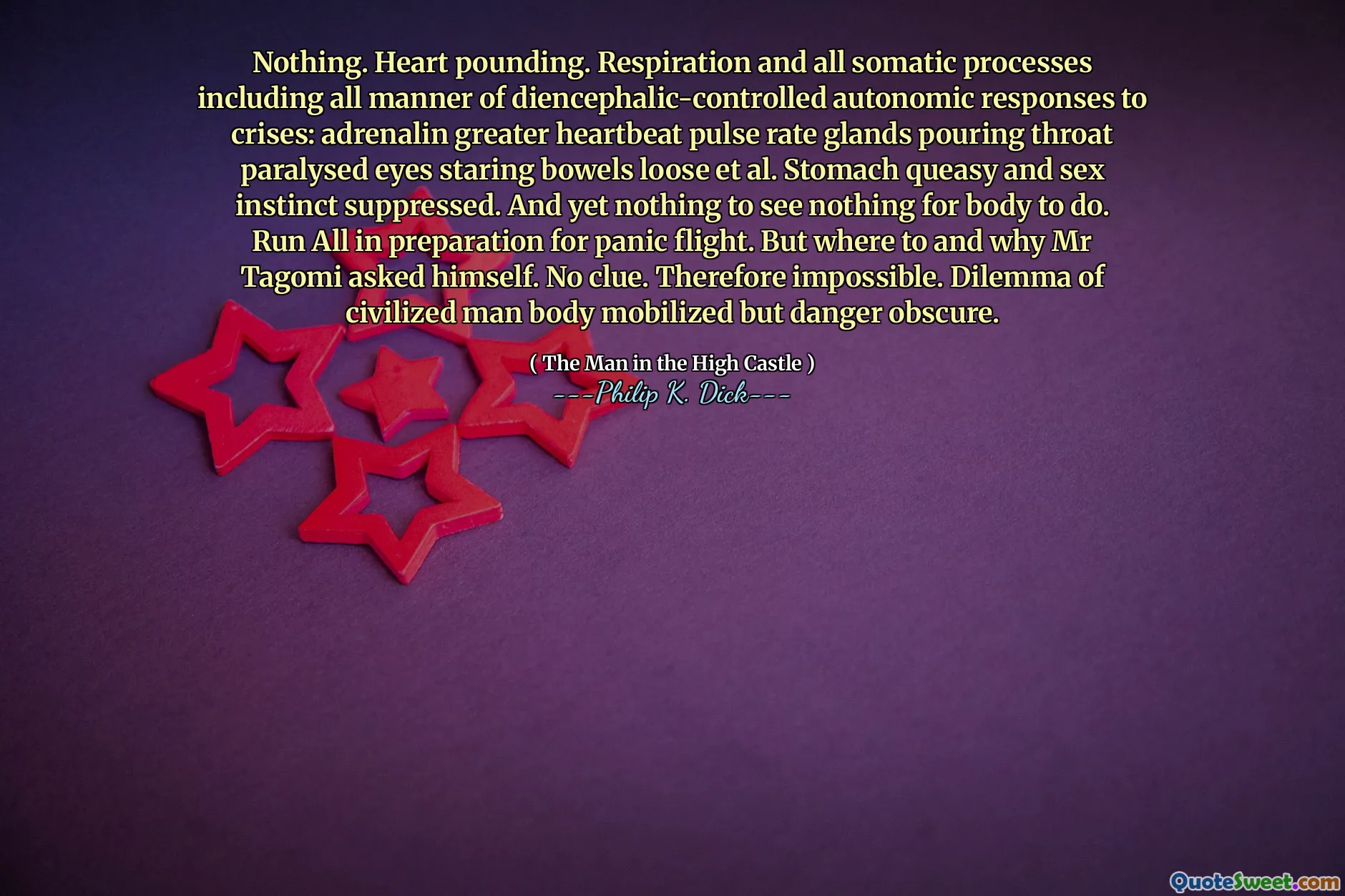
Nothing. Heart pounding. Respiration and all somatic processes including all manner of diencephalic-controlled autonomic responses to crises: adrenalin greater heartbeat pulse rate glands pouring throat paralysed eyes staring bowels loose et al. Stomach queasy and sex instinct suppressed. And yet nothing to see nothing for body to do. Run All in preparation for panic flight. But where to and why Mr Tagomi asked himself. No clue. Therefore impossible. Dilemma of civilized man body mobilized but danger obscure.
The passage reflects the profound internal conflict experienced by Mr. Tagomi, where his body reacts instinctively to an unseen threat. His heart races and his autonomic responses are triggered, indicating a state of panic. Yet, despite the intense physical reactions, he finds himself faced with an uncertain danger, leaving him paralyzed and confused, unable to identify a course of action. This juxtaposition highlights the struggle of a civilized individual when physical instincts clash with a lack of clarity in the situation.
This dilemma reveals the complexities of human experience, where instinctual responses can become futile in the absence of clear threats. Mr. Tagomi's anxiety illustrates how civilization complicates our primal fight-or-flight reactions, making it difficult to navigate fear when no obvious external danger exists. It encapsulates the modern man's existential crisis; while the body prepares for survival, the mind grapples with ambiguity, underscoring a deeper commentary on the nature of fear in a structured society.
